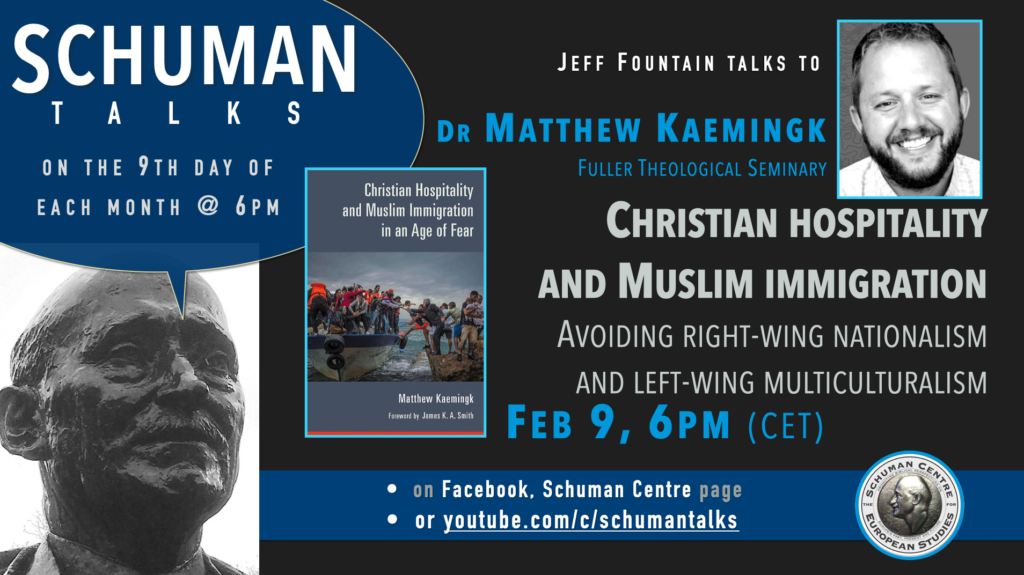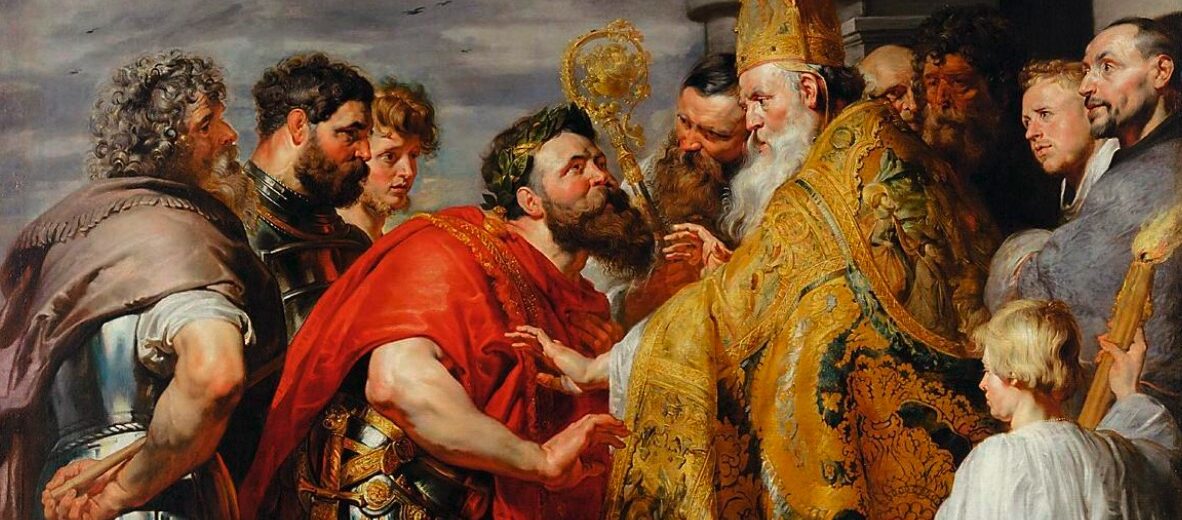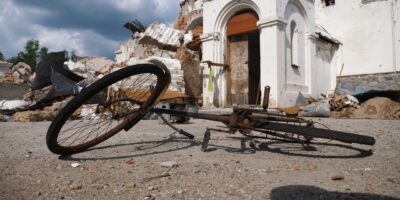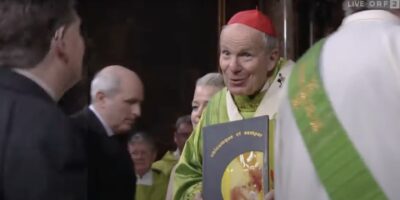The list is long of prophets and spiritual leaders who dared to speak the truth to rulers who crossed God-ordained thresholds – often at great cost.
Their examples should embolden us today to be ready to speak out, and not to bow to power like compliant chaplains, especially when those leaders claim to be defending the Christian legacy.
Moses confronted Pharaoh (Exodus 5). Samuel rebuked King Saul’s unlawful sacrifice (1 Sam 13). Nathan called out David’s adulterous and murderous fling with Bathsheba (2 Sam 12). Elijah stood up to Ahab (1 Ki 18). Isaiah took Hezekiah to task (Is 39). John the Baptist reprimanded Herod for marrying his brother’s wife – leading to his execution (Lk 3).
Ambrose, the fourth-century Bishop of Milan, banned Emperor Theodosius from the Eucharist after he ordered a vengeful massacre of 7000 men, women and children. The ban lasted eight months before Theodosius showed proper remorse (see Peter-Paul Ruben’s painting above).
Alcuin, the Anglo-Celtic monk, corrected his boss Charlemagne, the first Holy Roman Emperor, also known as ‘the butcher of Saxons’ due to his tactics of killing those who refused to convert to Christianity. God’s word should be spread by persuasion, urged Alcuin, not by the sword.
Thomas a Beckett’s refusal to give absolute loyalty to Henry II led to his murder in Canterbury Cathedral. Thomas More was beheaded on Tower Hill in London for choosing allegiance to God above Henry VIII.
Most vulnerable
Bonhoeffer opposed Hitler and the nazification of his own German Evangelical Church whose leaders welcomed the dictator’s rise under the strong spell of nationalism. Martin Luther King defied segregationist authorities and the FBI in his stand for justice and equality.
Nelson Mandela and Desmond Tutu opposed the apartheid regimes of South Africa. Alexei Navalny exposed the corruption of the Putin regime, and paid the ultimate price a year ago this month in a maximum security prison in the Arctic region.
Just days ago, the world witnessed a Washington bishop dare to remind the freshly-inaugurated American president of his accountability to God, begging him to have mercy on the most vulnerable in society and ‘on those in our communities whose children fear that their parents will be taken away’.
The bishop could have been reminding us all of what the Lord requires from each of us: to do justly, to love mercy and to walk humbly with our God (Micah 6:8). The opposite of these virtues are the vices of injustice, vengeance and pride, which are featuring far too prominently in today’s headlines.
These are challenging days for us all with the resurgence of nationalism, far-right attitudes and simplistic populist solutions for complex issues. We can easily be tempted to keep our opinions to ourselves and to endorse the strongman response in these days of growing callousness towards foreigners, those who think differently and those we scapegoat for the problems in our world. The parallels with the late 1930s are disturbing. Democracy is being undermined on many fronts.
Little people
I have often quoted the British philosopher John Stuart Mill who warned: ‘Let not any one pacify his conscience by the delusion that he can do no harm if he takes no part, and forms no opinion. Bad men need nothing more to compass their ends, than that good men should look on and do nothing.’
This month’s Schuman Talk, on February 9, will feature Matthew Kaemingk, author of a book pleading for a contemporary application of the ideas of Abraham Kuyper on what he calls a Christian pluralism, making room for the various worldviews in our society today. Christians are not called to try to dominate society again as in the past era of Christendom. Only Christ is sovereign, not Christians. It is a great mistake to strive for Christian hegemony, Kaemingk writes in his book, Christian hospitality and Muslim immigration in an age of fear.
He quotes Kuyper as insisting that a healthy political culture depended on Christians being deeply engaged in a wide variety of social spheres – as parents and neighbours, teachers and artists, writers and doctors, entrepreneurs and evangelists. The hope of democracy rested, not in the state, but in the lives of what Kuyper called de kleine luyden, the little people, acting as salt and light.
The State of Europe Forum in Warsaw, May 9 & 10, will also address this challenge of living in a polarised world where far-right politicians lay claim to the Christian legacy yet neglect to show hospitality, grace, justice, compassion, love and humility. Further information and registration will be opening soon. Watch this space!

Till next week,



